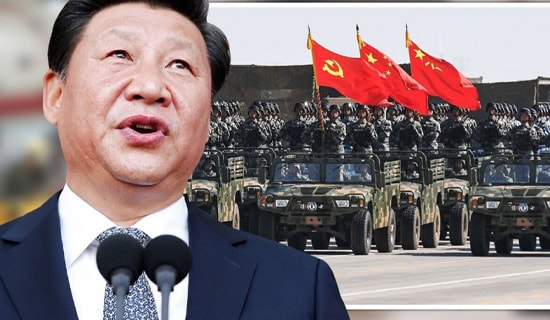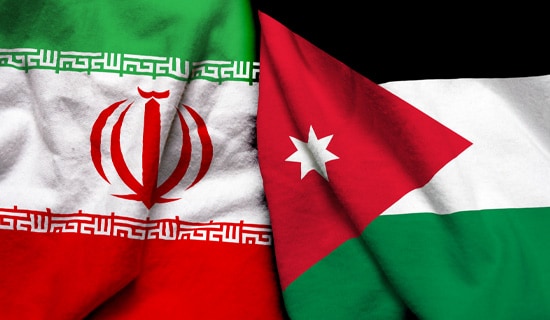In a September 3, 2015 address before Iran's Assembly of Experts, Supreme Leader Ali Khamenei referred to the JCPOA nuclear agreement. Following are excerpts from his speech and their implications:
Khamenei Backtracks From The Agreement
Supreme Leader Ali Khamenei declared that suspension of the sanctions - as agreed upon in the JCPOA and as adopted in U.N. Security Council Resolution 2231 - is unacceptable to him. He said that if the sanctions were not lifted, instead of merely being suspended, Iran would not honor its obligations under the JCPOA.
Thus, Khamenei is backtracking from the agreement and dictating a new demand - one that cannot be easily carried out even in the event that the U.S. administration surrenders to it. Procedurally, this would require a reconvening of the P5+1, a change in the language of the JCPOA, and a reconvening of the U.N. Security Council in order to endorse the new demand. On a substantive level, acceptance of Khamenei's demands would undermine the entire concept of the "snap back" of sanctions that the administration argued as one of the reasons justifying the JCPOA.
Khamenei Gives The Majlis Authority To Approve Or Reject The JCPOA
In his address, Khamenei gave the Majlis authority to approve or reject the agreement, a move that President Hassan Rohani had tried to prevent, being aware of the fact that many Majlis members were critical of the agreement.[1]
Implications
The fact that Khamenei decided to backtrack from the JCPOA immediately after it had become clear that President Obama had the votes to sustain a veto, indicates one of two possibilities:
Either Khamenei, aware that he was making an impossible demand, was trying to sabotage the JCPOA (a possibility supported by his transfer of authority to the Majlis), or else he was taking advantage of Obama's perceived surrender to all his demands and was trying to extract additional concessions by reopening the negotiations.
Furthermore, following Khamenei's directive to transfer the authority regarding approval of the JCPOA to the Majlis, spokesmen for the ideological camp in the Majlis have launched a public campaign against the JCPOA and against any compliance with the agreement on the part of Iran - as is incumbent upon it in the JCPOA - prior to the lifting of the sanctions.
Below are the main points of Khamenei's address:[2]
The Majlis Must Discuss And Make A Decision About The Nuclear Deal
SUPPORT OUR WORK

"Jurists and experts should examine the issue regarding the legal aspects of the agreement. In general, it would be inappropriate for us to sideline the Majlis from the process of examining the agreement, as I mentioned to President [Rohani]. I am not advising the Majlis whether to accept or reject the agreement The final decision is the responsibility of the people's representatives in the Majlis. I do believe that the Majlis should not be kept out of [the process] and that the representatives of the people need to make a decision on it."
The Negotiations With The U.S. And The Issue Of The Sanctions
"Although we spoke with six countries, the main party that we faced in the talks was the U.S. administration. The American officials speak impertinently, and this must be dealt with The Americans talked about maintaining the framework of the sanctions. If the framework of the sanctions is to be maintained, why did we negotiate? We negotiated [with the Americans] in order to have the sanctions lifted, and the sanctions will be lifted. Now, if we are supposed to uphold this framework  this completely contradicts the reason for Iran's participation in the talks to begin with.
"Otherwise, what was the point of our participation in the talks? We would have continued to do what we were doing [prior to the talks] 
"The fact that we sat down and held talks and made concessions on certain issues was mainly in order to have the sanctions lifted. If the sanctions are not going to be lifted, there will be no agreement
"[Our] officials [i.e., Rohani's government and the Ministry of Foreign Affairs] should make this clear. No one should say that the [Americans] are saying [that the sanctions will only be suspended] just in order to persuade their opponents at home. I do believe that there is indeed an internal debate in the U.S., which is a genuine dispute. I do not believe that this is [just] for show. Indeed, they do disagree, and we also know the reason for this. But we must respond to what is being said officially [by the Americans] - because if we do not respond, what the other side says will be enforced
"They say that they will suspend [the sanctions] or freeze them. This was not in our interest. Obviously the sanctions must be lifted. We said "immediately" and they interpreted "immediately" [in a certain way] and I didn't make a point of it.
"Our colleagues [i.e., the negotiating team] here interpreted "immediately" in a certain way, figured out a solution, and I did not object to it. Ultimately, however, the sanctions must be lifted. Freezing or suspension [of the sanction] is unacceptable to me.
"If they suspend [the sanctions], we too will suspend [what is incumbent upon us]. If we are to implement what [is required of us], the sanctions must be [actually] cancelled.
"True, the other side says that some of the sanctions are not theirs to be lifted. We say in response that [with regard to those sanctions] we will use our [legal] rights to stop them. But regarding [the sanctions that are] in the hands of the American and European governments - those must be totally lifted."
Iran-U.S. Relations
"Another issue is the way the [Americans] talk on matters not connected to the nuclear issue. The ladies and gentlemen in the American elite are talking the same way as the English did in the 19th century. This shows that [the Americans] are two centuries behind the world and behind history. The world has changed, and the superpowers no longer have the capabilities and the power to do what they did then.
"On the other hand, the party with which they are now dealing is Iran. It is not a backward country in some continent, to whom the Americans can allow themselves to speak whatever way they like. No. This is Iran, [a country] that has known capabilities, and others capabilities that are not [yet] known, but that will be seen [only] when they are put into action.
"It is inconceivable that you should constantly threaten [us].
"The Americans say that they expect the Iranian government to act differently. Differently from what? Differently from Iran's past? No. Such a thing will never happen, [because] it means violating Islamic rules and relinquishing loyalty to Islamic values. This is what they mean by "differently". That will never happen.
"No one will ever do such a thing - not the government, not the Majlis, and not the officials. And even if someone would want to do such a thing, the people and the regime of the Islamic Republic would not agree with him. What they mean by "differently" is that Iran will enter into the framework of the American policy in the region.
"America has a certain policy and certain positions in the region. One of them is that the U.S. administration should have absolute control over Syria and Iraq, and that it expects Iran to enter this framework. This too will never happen.
"They expect our senior officials, our government, and our politicians to act for the sake of this policy. This will never happen. Among the things they say that irritates us is that the nuclear agreement opened up opportunities for America, both within Iran and outside it. This is part of the American discourse. I tell our colleagues in the government and the people in charge not to allow the Americans to take advantage of such opportunities within Iran and to exert every effort to prevent America from taking such opportunities outside Iran. The closer the Americans get to such opportunities, the more humiliation, misery, and backwardness expand among the nations."
"I said the [following], and I emphasized it: No talks with the American side should be held except on the nuclear issue. I said this both to Foreign Ministry officials and to the other officials. The reason is that the American position is diametrically opposed to ours."
Endnote:
[1] See Rohani's speech on August 30, 2015, President.ir/fa
[2] Farsi.khamenei.ir, September 3, 2015.




